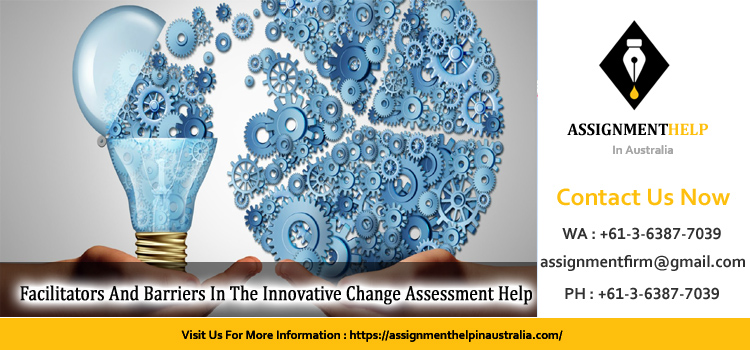Unit Title :- Facilitators And Barriers In The Innovative Change
Weighting :- 30%
Assessment type :- Critical review 2
Word limit / length :- 1,500 Words (+500 including in-text citations reference tables figures appendices)
Overview :-
You will critically review an innovative change idea its facilitators and barriers- this can be a real world example at a an organisational level such as your workplace; b) a community local level or c) a national level. Assignment 2 will be used as a basis for writing assignment 3, as you learn how to use facilitators to overcome barriers for a successful change management and implementation
Facilitators And Barriers In The Innovative Change Assessment

Learning outcomes:
This assessment task is aligned to the following learning outcomes:
• Understand contemporary concepts relating to innovative change
• Explore in depth the contexts of organisational environments to identify and respond to drivers supporting and negating opportunities for innovative change
• Critique relevant policy, both operational and strategic, to innovative change within the work-based context
• Examine the influence of leadership theories, and models relevant to innovative change processes
Facilitators And Barriers In The Innovative Change Assessment
Assessment details and structure
• A specific title for the assignment.
• Introduction (300 words). Provide the setting background and context/impetus related to the idea/need for the innovative change (e.g. Gap in the literature; translational research project patient safety efficiency and cost technological advance). Some parts of assignment 1 can be used here WITH OUT rephrasing.
• Facilitators that influence innovative change (600). Justify the argument put forward for the innovative change and perceived enablers. You can consider this from different perspectives (e.g., individual organizational and societal level/population health). Up to 3 key factors are recommended.
• Barriers that influence innovative change (600). Explain the barriers of the innovative change (e.g., different levels such as individual organisational and societal different factors internal external. Up to 3 key factors are recommended.


